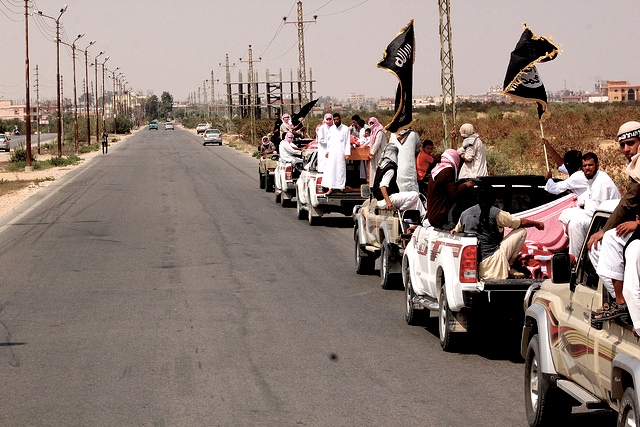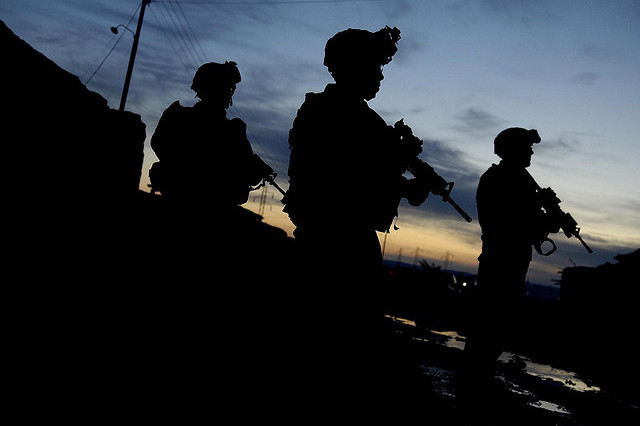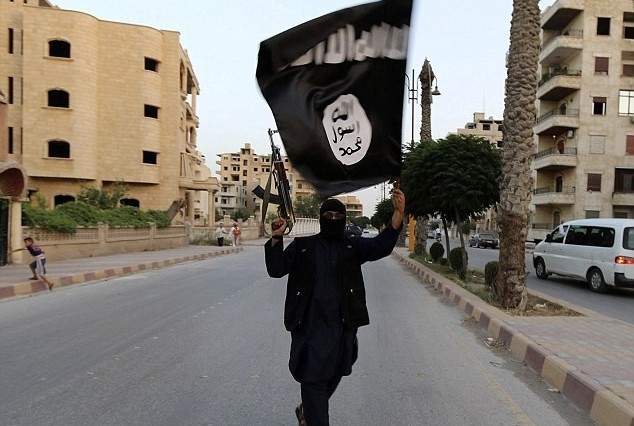by Derek Davison
The resurgence of “Salafi-jihadist” terrorist groups is once again at the forefront of national security thinking in Washington. A report released this week by the RAND Corporation, “A Persistent Threat: The Evolution of al Qa’ida and Other Salafi Jihadists,” explains why.
There were 20 active “Salafi-jihadist groups” around the world in 2001, according to Rand; last year this number was 49. In 2007 there were around 100 attacks around the world by al-Qaeda and affiliated groups; in 2013 there were over 900. The report offers many of the same dire assessments as the Carnegie Endowment for International Peace’s (CEIP) May 30 conference, “Al-Qaeda Transformed,” which featured a talk by Georgetown professor and terrorism expert, Bruce Hoffman, titled “Al-Qaeda’s Curious Comeback.” Not only is the number of terrorist groups at unprecedented levels, but their geographic reach has expanded as well, particularly into Africa.
What explains this turn of events? The key lies in the word the CEIP used in the title of its conference: transformation. Al-Qaeda is no longer the single, hierarchical group that perpetrated the 9/11 attacks. That hierarchy still exists in the Afghanistan-Pakistan region, but its direct role in carrying out terror attacks is negligible and its function is more an ideological totem than an active terror network. In its place is a network of local terror groups, who share a similar Salafi ideology and who to varying degrees have chosen to align themselves with al-Qaeda’s reputation or “brand.” These local groups may be directly affiliated with “core” al-Qaeda (like Syria’s Jabhat al-Nusra) or may share only the barest of connections (like Nigeria’s Boko Haram). But the overall result is a global, ideologically similar, collection of terrorist “franchises” that can exploit any local opportunity to expand their reach and capabilities. The Arab Spring, which was arguably a repudiation of violent Salafi extremism in favor of civil protest and reform movements, has actually enabled the rise and development of many of these local groups. It has led to lawless chaos and anti-government violence in places like Syria and eastern Libya, and Salafi terror groups have thrived in those conditions.
The other conclusion that can be drawn from this resurgence of Salafi terrorism, and the reemergence of al-Qaeda in its new, atomized form, is that the US’ “War on Terror” is failing. Every face of America’s counterterrorism policy has to be called into question, from the War in Afghanistan, to drone strikes (which have very likely created more terrorists than they killed), to the indefinite detention and torture of suspected terrorists (which have only served as rallying cries for terror groups).
Yes, America has managed to avoid another 9/11-style attack, but the decentralization of terror networks explains that as well. Al-Qaeda has always had two targets: the “far enemy” (America, the West) and the “near enemy” (hostile and/or secular governments in the Middle East). As al-Qaeda’s organization has decentralized, its local networks have refocused their attention on the “near enemy,” sparing America the brunt of their efforts. These regional al-Qaeda affiliates recruit new followers based on local conditions, to join a local fight. But the danger is that, as their capabilities grow, these locally focused groups will shift their attention to the far enemy. The fact that so many Salafi groups see a benefit to being connected to Al-Qaeda’s name, its cause, and its reputation shows that al-Qaeda’s core ideology still has resonance with potential recruits, so the chance that at least some of these affiliates will eventually take up Al-Qaeda’s fight against the West is not insignificant.
Both Hoffman and Rand suggest a number of policies to counter the rising Salafi tide. They range from direct US military action to countering Salafi propaganda online, to the increasingly popular idea of aiding Middle Eastern governments as they try to develop governing institutions, to improve their internal security situations, and to stabilize regions (eastern Libya, for example) that are currently outside government control. The latter is the focus of President Barack Obama’s newly proposed “Counterterrorism Partnerships Fund,” a $5 billion program aimed at training local security forces to respond to internal threats. While improving governance and security is a worthwhile goal in the abstract, these funds should not be misused. It’s a cliché to say, “one man’s terrorist is another man’s freedom fighter,” but if US counterterrorism resources are used by authoritarian regimes to stifle legitimate political opposition, then this program, too, will only damage America’s reputation and work against its long-term national security goals.
After 9/11, George W. Bush informed Americans that “they [the terrorists] hate our freedoms.” That notion, ridiculous when it was first uttered, appears all the more ridiculous today, after we’ve watched Arabs, Iranians, and Turks take to the streets to fight — and in some cases die — for their personal freedom over the past five years. It is accordingly past time for the US to reckon with how its own policies have legitimized Salafi/Al-Qaeda propaganda about “the far enemy.” Drones, detention, and torture may well have created more terrorists than they’ve killed or otherwise prevented, but there is more to it than that. A foreign policy that supports Israel regardless of what Israel does to Palestinians trapped in Gaza or forced into Bantustans in the West Bank creates anti-US sentiment. When US weaponry, whether wielded by American forces or by American clients, is killing civilians in places like eastern Libya, Gaza, and Sinai, anti-US sentiment will increase. American patronage of authoritarian Middle Eastern regimes absolutely creates anti-American sentiment. That sentiment is what will allow currently localized terror networks to shift their attention from the enemy at home to America, the enemy abroad.
It’s easy to rattle sabers about “freedom” and “human rights” when the target has already been cast as the villain, so it’s no surprise that US foreign policy has emphasized these issues when it comes to Bashar al-Assad, or Saddam Hussein, or the Iranian clerical regime. But unless America embarks on some hard choices about holding its allies to the same standards it demands of its enemies, its reputation will continue to suffer. The Leahy Amendment, a 1997 law that requires the US to cut off aid to foreign security forces that are suspects of human rights violations, ought to force these hard choices, but it needs to be applied consistently rather than ignored when it becomes inconvenient (as in, for example, Bahrain). The US military establishment chafes against Leahy’s restrictions, arguing that it constrains them from aiding foreign militaries that are confronting potential threats to the US, but this criticism is short-sighted. It’s far better for US security in the long-term if it can avoid links to acts of oppression or violence perpetrated by authoritarian regimes.
When US actions contradict US rhetoric, it damages America’s stature in the world and gives more ammunition to the message of groups like al-Qaeda. Without the political willingness to frankly and honestly examine America’s role in the world and the impact of US policy choices, then Salafi terrorism in all its forms will remain a potential threat.
Photo: Sinai militia carrying al-Qaeda flags head for a funeral of killed militants on August 10, 2013. Credit: Hisham Allam/IPS.






I feared chaos in Libya if the West overthrew Gaddafi. Weapons from Libya played a large role in firing up the civil war in Syria.
I was one who did not celebrate the overthrow of Mubarak because I thought it would lead to economic dislocations, destruction of museums, libraries and arcaeological sites etc etc. And end up with a different general in charge anyway.
It is not only anti-US sentiment which is promoted by US support for regimes with highly questionable human rights records but general anti-Western sentiment more generally too.
As a UK humanist, I despair whenever I see Western governments promoting religion through public education systems. Most recently, we have an on-going Operation Trojan Horse investigation being carried out into religious extremists taking control over publicly-funded schools in Birmingham.
None of this comes as any surprise to any half-way educated secularist.
Starting with Saudi Wahabism, we have seen repeated attempts to poison the minds of very young children with extremist religious propaganda for many years. Until such time as authorities in the West challenge extremist and irrational belief systems which underpin religious extremism, then – and only then – can we all begin to reverse such extremist behaviour and the consequences which flow from it.
So now the thinking is that the U.S. War on Terror is to blame on al Quada growth in the world, especially Africa. Blaming the so called Arab Spring, when it was the training of the NGO’s from the U.S. with government blessing/backing? The U.S.Military Africa command is spread all throughout that continent, leads one to wonder just what the U.S.Military would o if there wasn’t anyone to fight, anywhere? Protecting the U.S. since 9/11, but at what cost? Loss of rights, intrusions into almost every nook & cranny of the former life’s led by all citizens. Oh, let’s not forget the monetary costs too, into the stratosphere somewhere. Just whose interest has been threatened? The only clear answer, is the military/industrial complex, along with those pundits who advocate war as well as the sycophant followers. No wonder the U.S. is looked down upon in the world.
Why is it that we may not speak this truth? We are hated in the region for what we do there. And that hatred is amply justified. We don’t need to be there in any direct OR indirect military capacity. We are obsessed by the Middle East, largely because of the ignoble nature of our relationship with Israel and because when we are there we spend our time pushing Muslims around or enabling Israel to do so. End this stupid behavior as Obama seems to know needs to be done, confront our Zionist/neocon fifth column and after a transition period we’ll do just fine. What we need over there is nothing more than correct diplomatic relations and commercial ties which take care of themselves ala Adam Smith. Adopt an offshore policy which served us admirably from Jefferson to the end of WWII. There is no reason whatever that it won’t work again. Enforce Fara. Attack AIPAC from the bully pulpit openly and repeatedly. None of this is rocket science. It’s the American interest. Why should we think of ourselves as forbidden to follow it. Basta!